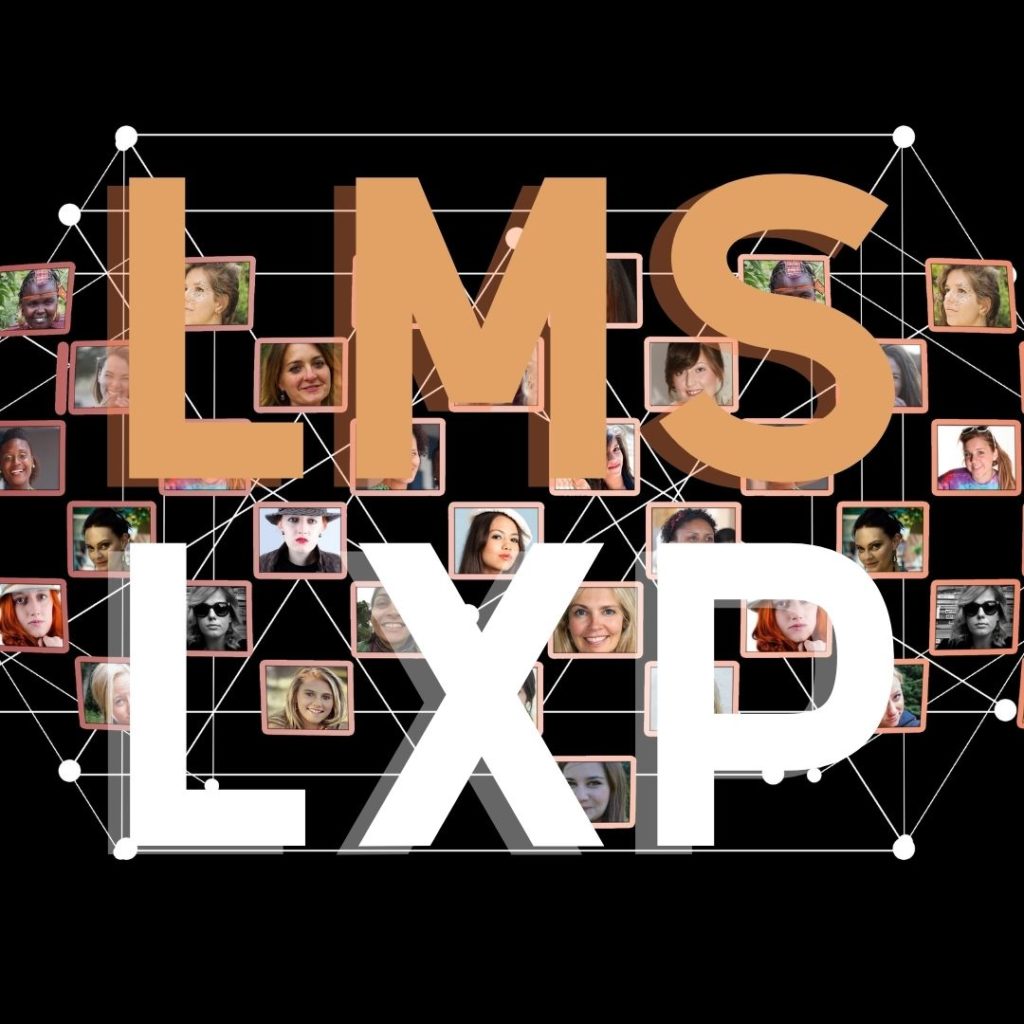Modern learning delivered online should not be limited to a particular format or style. As a result, it should embrace a variety of approaches: Traditional and nontraditional, sociable and self-paced, pedagogic, androgogic and heutagogic; and so on. All of it should work together to produce a comprehensive, well-rounded experience that promotes long-term achievement.
With so many innovative methods to educate as well as upskill your staff, it’s critical to identify the most useful routes, invest in them, and spread the word about their significance across the organisation.
In eLearning today, there are two main technology routes for the journey: A Learning Management System (LMS) and a Learning Experience Platform (LXP). Despite the fact that they serve distinct purposes, when integrated, they play an important part in the learning strategy of your organization.
What are the differences between an LXP and an LMS?
The effectiveness of your training can make a difference when it comes to retaining great talent. It’s not something that should be taken lightly or ignored. This excited potential is one of the foundational reasons behind the inception and enthusiastic adoption of Learning Experience Platforms (LXPs) in recent years.
Meanwhile, dependable LMS systems are largely viewed as providers of linear experiences, for better or worser. Users are fully aware of the learning route that they will take, the expectations they should have, and the criteria under which they may progress to the next level within the structure. Both pupils and their supervisors may anticipate the outcome of the procedure.
Instead of following a predetermined course, LXP encourages learners to explore their surroundings instead. Each user may have a completely different learning route. Admittedly, this makes it more difficult to govern the process and obtain clear-cut data to make straightforward decisions.
Many of the actions taking place in an LXP are not easily quantifiable or comparative, which is not to say it is impossible to measure. In fact, a continous progress route comes from the implementation of analytics and standardization with specifications like xAPI. On the upside, it encourages users to get more active in the process by educating them about topics that interest them.
The ‘vitality’ of LMSs come LXPs
When it comes to corporate learning and development, the Learning Management System (LMS), the long-time precursor of the LXP, has been indeed the go-to option. Over time, technological advancements have pushed the boundaries of learning management, resulting in the development of more complex, state-of-the-art experiences that put many of the LMS expectations into shaky ground.
LMS will not become obsolete anytime soon. The utility of the conventional learning platform continues to be recognised by several groups, with a particular upward trend in the enterprise, however tempring LXPs continue to become. Elearning statistics lend testimony to the still upward trend of the LMS.
But let’s not downplay the effect the concept of “learning experiences” has had, spearheaded by the welcome reception LXPs have enjoyed. Case in point is the idea of “discoverability” of content, which before the LXP it felt trivial: LMS are commonly thought of as content libraries and repositories where content is supposed to be there.
Conversely, LXPs are content discovery platforms: They enable users to discover content. Variety of formats and sources, immersive media and always groundbreaking interactivity are set to be the norm. To boot, AI and Machine Learning algorithms have a clear role to play when it comes to discoverability: They can optimize content delivery on an individual learner basis, suggest personalized content, find third-party sources, index up-to-date data in compelling ways, provide great aid in video production —as well as other digital assets—, among many other things.
So even though both LXP and LMS are used to promote employee learning and growth, their functionality is rather different. However, they both still have a sit at the table. Organizations seeking the best of both worlds can either consider building a thoughtful integration, or jump into the bold promise of a platform that excels as LMS and LXP both, which several vendor do already?
Who wields control
In an LMS, administrators have all the cards. The role usually stems from an HR office, perhaps a dedicated L&D department, or sometimes from the leadership team if the organization is small enough. A trainer may be the person in question. The admin is responsible for uploading courses into the LMS and making them accessible to students.
Common admin tasks include reviewing and approving any user-generated content that appears on the system’s pages; or if a student submits something, moderate it before it’is made public. For all intents and purposes, the admin is a gatekeeper. They have overarching control over the volume as well as the flow of the material, and they keep everything that isn’t absolutely necessary out of the way.
Meanwhile, in an LXP, everyone contributes to the content curation. Every one, regardless of job or place on the food chain can post and control the content as well. This is due to the fact that LXPs are designed to be content aggregators; in other words, the platform serves as a catch-all for whatever information your team determines to be worthwhile.
Accessibility pause
Whether content availability is limited or difficult, or plain and straightforward, accessibility must take precedent. LXPs are content discovery systems that expose content across a variety of devices as well as platforms. This enables learners to access learning when they are on the go. Learners will be able to locate exactly what they need and when they need it, thanks to the integration of Google-grade search engines and the possibility of embedding AI-powered chatbots. While accessibility should be a prerogative for all types of content, at least under the premise of discoverability the LXP can lead users into content that caters their needs or requirements.
A look the marketplace
The LMS\LXP market is really large and extremely chaotic. LMS have begun to blur the borders between the two by including LXP features to increase their emphasis on learners, such as personalized learning recommendations, observational interactions, collaboration, among other things.
Furthermore, many industries have adopted just-in-time learning in order to distribute knowledge just when and where it is required. No one is going to sit around waiting for a course to start today. The LXP may be seen by some organisations as an antidote or an alternative for a tough LMS. However, after a period of usage, they came to know that LXP has significant functional holes.
To sum up: The LXP goes beyond The LMS
LXPs broaden the range of onboarding choices available to an organization. The companies rely on the capabilities of current LMS, but they shift the emphasis away from the administration of learning towards the acquisition of knowledge and skills. These tools put learners at the centre of the onboarding process and assist the users in being fully integrated into the organization and contributing to its success.
Increased retention, lower turnover, and more engaged new workers are all advantages for the organisation as a whole. LXPs offer the potential of a quick and successful onboarding process, which will convert into higher productivity early on and enhanced performance from new workers throughout the course of their careers.
About the author
Harikrishna Kundariya is a marketer, developer, IoT, ChatBot & Blockchain savvy, designer, co-founder, Director of eSparkBiz Technologies. His 10+ experience enables him to provide digital solutions to new start-ups based on IoT and chatbots.








